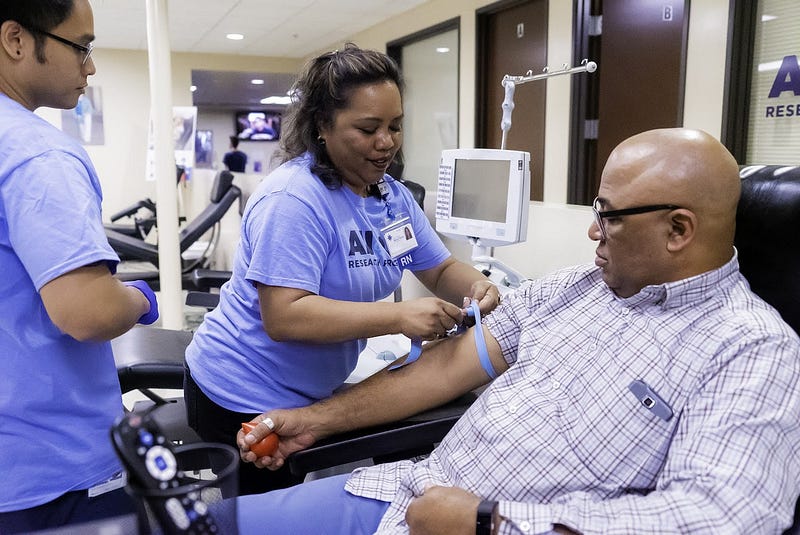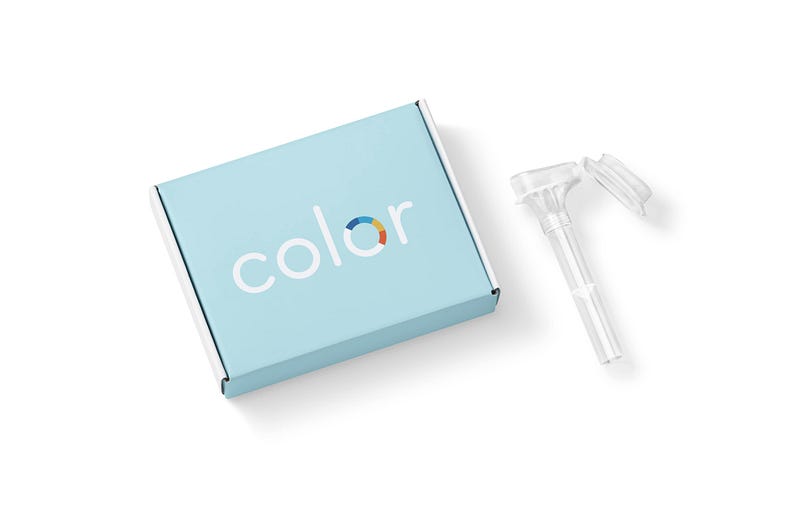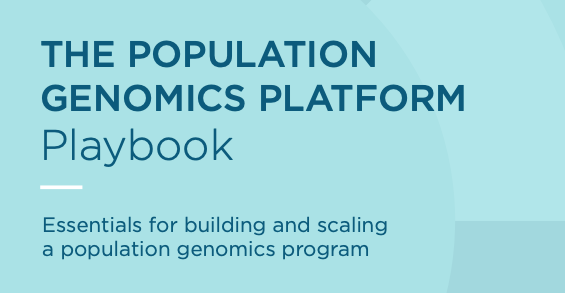News & Articles
Latest Color Publications, Research, and News
Ben Kobren
Fall 2019
In this quarter’s recap of Color’s latest news, we’re sharing details about our recent grant from the National Institutes of Health, a partnership with Verily, a new population health program at Ochsner, a new employer partner in Alaska as well as an exciting update on a Color grant research project in Trinidad and Tobago.
All of Us Research Program Genetic Counseling Award

Credit: All of Us/NIH
The National Institutes of Health selected Color as the sole awardee to set up and deliver all of the genetic counseling for the million-person All of Us Research program. Color will also provide the technological backbone for the broader program, building custom software and tools to integrate data from all the genome centers, standardize reporting across the program, and ensure all results are returned in a unified way. This is a first year $4.6 million grant as part of a multi-year $25 million project.
As one of the most ambitious research programs in history, the All of Us Research Program aims to create the largest and most diverse health research resource of its kind. This award is in addition to Color’s ongoing collaboration with the Broad Institute and Harvard’s Laboratory of Molecular Medicine, Cambridge, Massachusetts, which together received one of the three All of Us genome center awards announced in September 2018.
The All of Us Research Program Genetic Counseling Resource is supported by NIH award number OT2 OD028251.
Color Genetic Score Study

Color released its polygenic risk score for coronary artery disease, which utilizes a low-coverage whole genome sequencing-based technique combined with genomic imputation. This score is the first release from the Color Genetic Score Study, an ongoing research initiative to enhance the development of polygenic risk scores for several common chronic diseases within diverse populations.
Polygenic disease predisposition has been a focus for researchers and a number of commercial scores have been launched previously. However, these scores have traditionally been developed using data derived primarily from European populations, limiting their applicability. They have also relied on genotyping arrays rather than more recent whole genome sequencing innovations combined with genomic imputation to assess common genetic variation. Along with providing polygenic risk insight to study participants, Color will also provide access to data from consenting participants to researchers through Color Data, a research database. This will drive further understanding of genetic risk in historically underrepresented populations in health research.
Verily and Color Partner to Return Actionable Results to Participants of Project Baseline Health Study

Verily and Color are partnering to return actionable genetic information to all Project Baseline Health Study participants. Project Baseline Health Study participants will have access to Color’s physician-ordered, clinical grade genomic services, board-certified genetic counselors, and clinical pharmacists, enabling them to better understand their risk for certain hereditary cancers, heart disease, and genes that impact medication response. The unique virtual services from Color enable genetic testing to be ordered online, samples to be provided conveniently at home, results to be delivered in a matter of weeks, and genetic counseling to occur over the phone. Participants can work with their physicians to integrate their results into care, like preventive action plans for those at a higher risk of a hereditary condition.
Verily and Color are demonstrating that not only is returning results the ethical action, but new delivery models can efficiently recruit participants, return actionable results, and strengthen longitudinal engagement, all while conducting invaluable research.
Ochsner Health and Color Launch Digital Population Health Program

Color, in partnership with Ochsner Health in Baton Rouge, Louisiana, launched the first fully digital population health program that integrates clinical genomics into routine care.
One thousand patients in Ochsner’s Baton Rouge primary care networks now have access to Color via a fully digital platform. Access, engagement and ordering will all be digital. The testing kits will come in the mail to the patient’s home, genetic counseling services with Color’s board-certified Genetic Counselors are available over the phone and digital reports are integrated back into Ochsner medical records for care.
This pioneering digital approach in a primary care network is bringing clinical insights and care directly to the patient, marking a major milestone for high quality and convenient healthcare. This new model is consumer-oriented, clinically robust and deeply integrated into downstream care. More importantly, it has the potential to ensure everyone benefits from a deeper understanding of how genetics impact health while informing smarter decisions by healthcare providers.
Color Open-Sources Playbook for Population Genomics Programs

Color released an open-source playbook that provides the underlying framework for its Population Genomics Platform. The playbook is available to organizations working to build and scale population genomics programs. By open-sourcing this playbook, Color is supporting global efforts to make genetics and precision health programs accessible, convenient, and cost effective, while offering responsible clinical grade return of results to all participants.
The Population Genomics Platform playbook is based on Color’s experience building population genomics programs delivered through health systems, global academic research initiatives, population health services to more than 100 leading employers and the million-person All of Us program by the National Institutes of Health
Color and Salesforce Expand Partnership

Color and Salesforce expanded their partnership to the more than 20,000 Salesforce employees in the US. Employees now have access to Color’s physician-ordered, clinical grade genomic services, board-certified genetic counselors, and clinical pharmacists, enabling them to better understand their risk for certain hereditary cancers, heart disease, and genes that impact medication response.
The Salesforce partnership illustrates how Color’s enterprise program serves the common needs of institutions who manage the health of large populations. Color uses genetics as a foundation to engage employees in their health and connect them to the right care — while delivering insights for a healthier population. Together these types of partnerships are making precision health programs accessible, convenient, and cost effective for everyone.
Delivering Clinical Genetics and Precision Health to Alaska

Color announced a new collaboration with Foundation Health Partners in Alaska, providing Employees of Foundation Health Partners and their dependents (nearly 3,000 people) with access to Color’s physician-ordered, clinical grade genomic services, board-certified genetic counselors, and clinical pharmacists, enabling them to better understand their risk for certain hereditary cancers, heart disease, and genes that impact medication response. This critical information provides a deeper understanding of risk across entire populations, helping to inform smarter decisions about care which can lead to better outcomes at scale.
Color’s ongoing partnerships around the country demonstrate that the company has the building blocks and infrastructure to integrate large scale clinical genomics into precision health.
Multi-gene panel testing of 23,179 individuals for hereditary cancer risk identifies pathogenic variant carriers missed by current genetic testing guidelines

Color, Peer-reviewed Publication
The Journal of Molecular Diagnostics published Color’s latest research highlighting how the current National Comprehensive Cancer Network genetic testing guidelines for hereditary cancer are missing a significant number of individuals who are at increased risk due to pathogenic variants. The research findings offer support for broadening access of genetic testing beyond high-risk populations for highly penetrant conditions that have well-defined genetic causes and well-established clinical interventions.
Cynthia L. Neben, Anjali D. Zimmer, Will Stedden, Jeroen van den Akker, Robert O’Connor, Raymond C. Chan, Elaine Chen, Zheng Tan, Annette Leon, Jack Ji, Scott Topper, Alicia Y. Zhou
Assessment of blind predictions of the clinical significance of BRCA1 and BRCA2 variants

Color, Peer-reviewed Publication
The journal Human Mutation published collaborative research by Color highlighting insights and lessons learned for computational prediction in variant interpretation. With increased utilization of genetic testing for disease-causing variants in the BRCA1/2 genes, there has been an increase in the number of variants of uncertain significance (VUS) being identified. This manuscript reports the experience of research teams in computational prediction of pathogenicity of a panel of recently interpreted genetic variants with a summary of lessons learned and insights for future applications within the field.
Melissa S. Cline, Giulia Babbi, Sandra Bonache, Yue Cao, Rita Casadio, Xavier de la Cruz, Orland Díez, Sara Gutiérrez‐Enríquez, Panagiotis Katsonis, Carmen Lai, Olivier Lichtarge, Pier L. Martelli, Gilad Mishne, Alejandro Moles‐Fernández, Gemma Montalban, Sean D. Mooney, Robert O’Conner, Lars Ootes, Selen Özkan, Natalia Padilla, Kymberleigh A. Pagel, Vikas Pejaver, Predrag Radivojac, Casandra Riera, Castrense Savojardo, Yang Shen, Yuanfei Sun, Scott Topper, Michael T. Parsons, Amanda B. Spurdle, David E. Goldgar, The ENIGMA Consortium
Color Panel Reveals Hereditary Cancer Risk in Trinidad and Tobago Breast Cancer Patients

Researchers from Yale University, Trinidad and Tobago’s National Radiotherapy Center (NRC), and Color have identified inherited cancer-related genetic variants in a significant proportion of women treated for breast cancer in the Caribbean country. Researchers using Color’s 30-gene panel to assess inherited cancer risk have identified disease-causing genetic variants in approximately 1 out of every 5 women with breast cancer who also met National Comprehensive Cancer Network genetic testing guidelines for Hereditary Breast and Ovarian Cancer. These results underscore an urgent need for robust counseling and genetic testing services.



